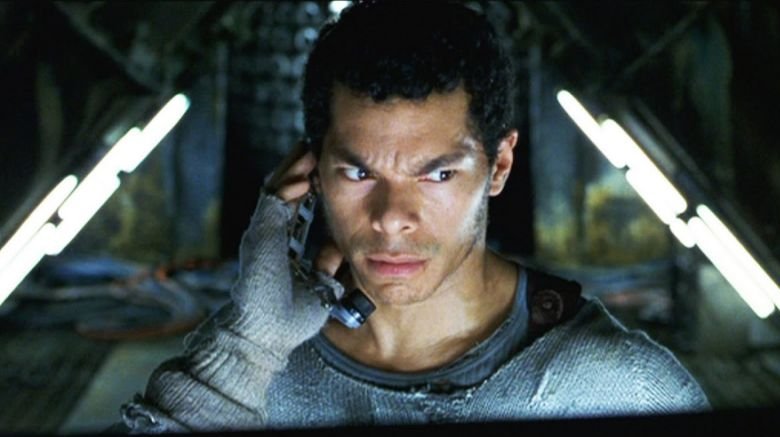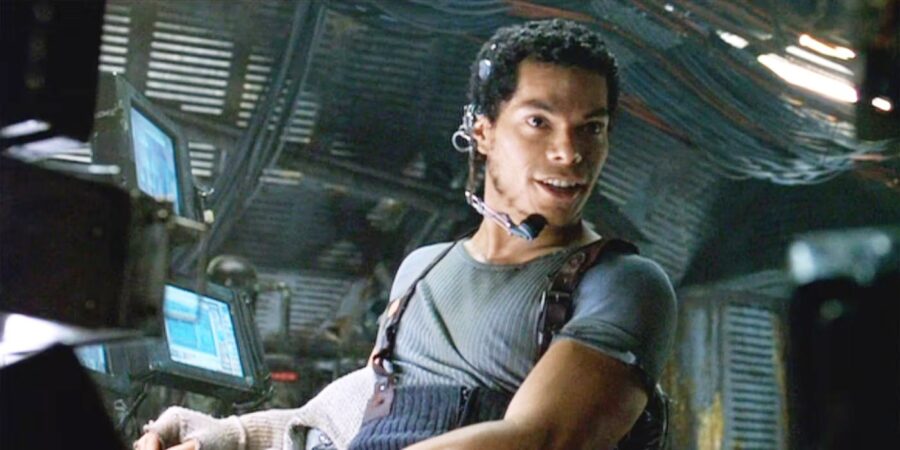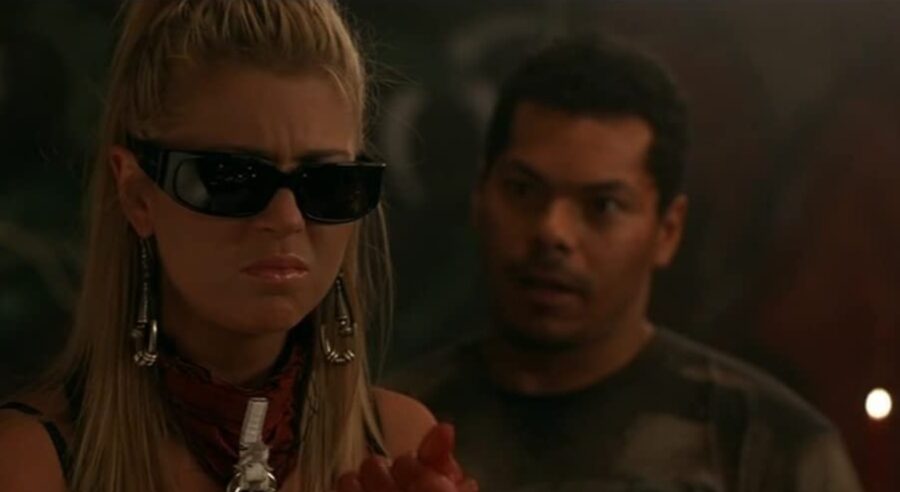The Matrix Star Was Fired From The Sequels Because Of A Bizarre Request
Marcus Chong, who plays Tank in The Matrix, was cut from the sequels after he requested either half a million dollars to appear, or nothing at all.

Ever wonder why Tank never shows up in any of the sequels to 1999’s science fiction classic The Matrix? After all, with the exception of the leads–Neo (Keanu Reeves), Trinity (Carrie-Anne Moss), and Morpheus (Laurence Fishburne)–by the end of the film he’s the only surviving crew member of The Nebuchadnezzar. Marcus Chong played Tank, and he was cut from the franchise after making arguably the absolute grandaddy of all strange demands: he wanted either $500,000 to appear in The Matrix Reloaded and The Matrix Revolutions, or he would do them for free.
Four years after The Matrix hit theaters, E! Online reported that Chong had filed a lawsuit against Warner Bros. and the Wachowski sisters’ Eon Productions for fraud, slander, and breach of contract. It turns out that the Wachowskis wanted Chong to reprise the role of Tank in the sequels, but unfortunately negotiations turned ugly, escalated from ugly to weird, and then went right back to ugly. The suit would ultimately fail, but it gave E! Online and other outlets the chance to uncover what allegedly happened.
Chong was offered $250,000 to appear in both The Matrix Reloaded and The Matrix Revolutions; that’s for both movies, not per. That sum wasn’t good enough for Chong, and the negotiations culminated in his lawyer sending a letter to the Wachowskis which said, “Either the studio will meet [Chong’s] price ($500,000, plus bonuses and guarantees he’ll be invited to press junkets and premieres)…or he’ll do the movies for free.” Apparently neither of those options sounded good, so Chong soon learned he had been released from The Matrix.
But that wasn’t the end of the story. According to Entertainment Weekly, Chong was arrested in October 2000 for allegedly making threatening phone calls to the Wachowskis. In his suit, Chong claimed he had since been blackballed from Hollywood and blamed The Matrix creators and Warner Bros. from branding him a “terrorist.”

Tank isn’t the most major character in The Matrix, but he’s integral to the plot. As the “operator” it’s almost always Tank on the other end of the phone when heroes like Neo and Trinity want out of the Matrix. He’s also the guy who uploads all sorts of combat training into Neo’s noggin to make him ready to take on the Agents.
In fact, it’s only because of Tank that the lead heroes survive. After the treacherous Cypher (Joe Pantoliano) murders most of The Nebuchadnezzar’s crew–including Tank’s brother Dozer (Anthony Ray Parker)–Tank is the only one left and, along with pulling Neo and Trinity out of the Matrix, he makes Cypher pay for turning traitor. In The Matrix Reloaded we learn from his sister Zee (Nona Gay) that her brother died on a mission between the first film and the sequel.

Whether or not Chong was truly “blackballed” by the Wachowskis and Warner Bros. as his lawsuit claimed, his professional acting career hasn’t seemed to exactly thrive since he lost his spot in the sequels to The Matrix. The only other feature film he’s since starred in is 2005’s The Crow: Wicked Prayer, in which he plays War–a member of a Satanic biker gang. Wicked Prayer only had a limited theatrical release, but it featured a substantial cast including Edward Furlong (Terminator 2) as the titular hero, David Boreanaz (Angel), Tara Reid (American Pie), Danny Trejo (Machete), and the Oscar-nominated Dennis Hopper (Blue Velvet).
His only credits since then have been for short films, the last of which was 2013’s Not 4 Sale. In 2018 he released his self-made documentary The Marcus Chong Story on YouTube, in which he chronicles his acting career and challenges.
Along with claiming he was treated unfairly by Warner Bros. and the Wachowskis both during and after the making of The Matrix, Chong also makes some ugly accusations against C. Thomas Howell. Chong starred in the Howell-helmed direct-to-video 1996 action thriller Pure Danger, and claimed that when a scheduling conflict arose that stopped Chong from doing post-production looping, Howell threatened him on the phone repeatedly, including using racial slurs. He also accused Howell and his agent of getting Chong’s talent agency to drop him.












